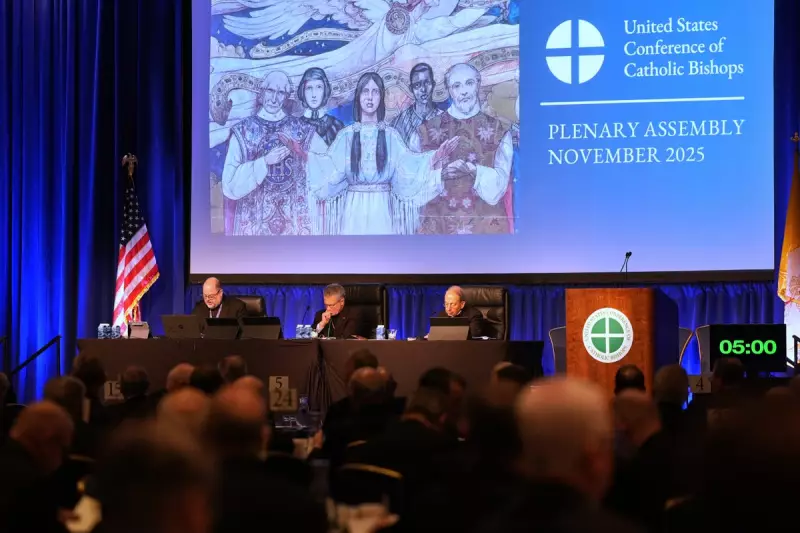
US Bishops Formalise Ban on Transgender Medical Care
In a decisive move, U.S. Catholic bishops have voted to officially prohibit gender-affirming care for transgender individuals within the nation's Catholic healthcare institutions. The landmark decision, taken on Wednesday, 12 November 2025, during a conference in Baltimore, formalises a conservative approach that has been developing for years.
The bishops overwhelmingly approved revisions to the ethical and religious directives that guide thousands of Catholic hospitals and providers across the United States. This step is significant given that, according to the Catholic Health Association, more than one in seven patients in the U.S. are treated each day at a Catholic hospital, which often serve as the sole medical centre in their communities.
Directives and Doctrinal Foundations
The new guidelines incorporate earlier documents from the Vatican in 2024 and a 2023 doctrinal note from the U.S. bishops titled “Moral Limits to the Technological Manipulation of the Human Body.” This note explicitly stated that “Catholic health care services must not perform interventions, whether surgical or chemical, that aim to transform the sexual characteristics of a human body into those of the opposite sex.”
During the public discussion, Bishop Robert Barron of Minnesota’s Winona-Rochester diocese emphasised the importance of the church making a strong statement on gender ideology. While most Catholic institutions had already refrained from offering such care, the new directives make this prohibition official, with individual bishops having autonomy to enforce it within their dioceses.
Progressive Religious Voices and Wider Support
The decision has not been met with universal agreement within the religious community. On the same day the bishops were voting, the heads of several major progressive religious denominations issued a joint statement in support of transgender, intersex, and nonbinary people.
Michael Sennett, a trans man active in his Massachusetts parish and a board member of New Ways Ministry, argued that gender-affirming care is what makes life livable for many trans people. Francis DeBernardo, the ministry's executive director, added that for many transgender Catholics, the transition process is not just a biological necessity but a “spiritual imperative.”
The 10 signatories of the supportive statement included leaders from the Unitarian Universalist Association, the Episcopal Church, and the Union for Reform Judaism, affirming that “our beloveds are created in the image of God – Holy and whole.”
Bishops Unite on Immigration Stance
In a separate but notable act of unity, the U.S. Catholic bishops also overwhelmingly approved a rare “special message” on immigration. This pastoral statement, the first since 2013, expressed deep concern about the current climate.
The bishops stated they are “disturbed” by a “climate of fear and anxiety” around immigration enforcement and “saddened by the state of contemporary debate and the vilification of immigrants.” The statement was strengthened during discussions to explicitly state the bishops' opposition to the “indiscriminate mass deportation of people,” following a recommendation from Chicago Cardinal Blase Cupich.
Oklahoma City Archbishop Paul Coakley, the newly elected conference president, voiced strong support for the message, calling for a meaningful path to immigration reform.





